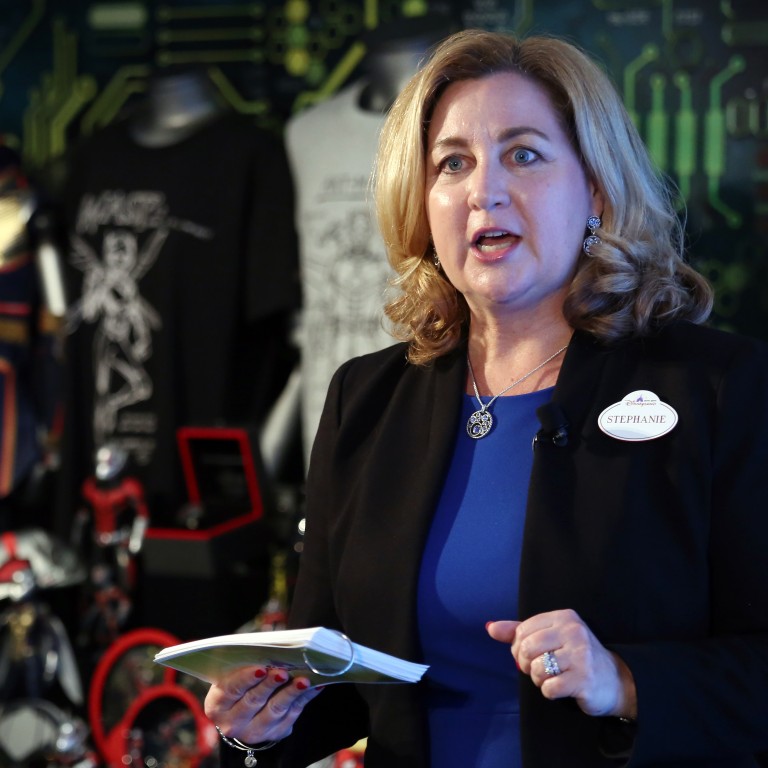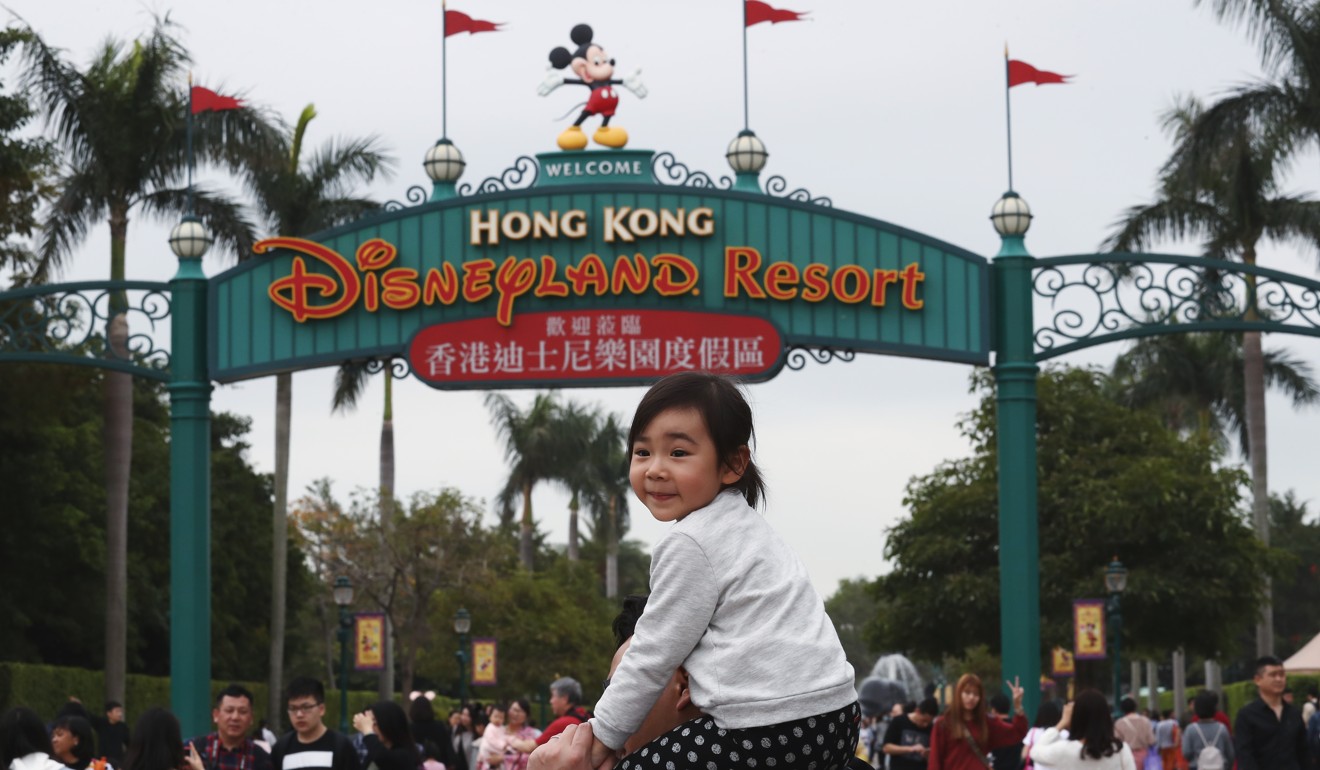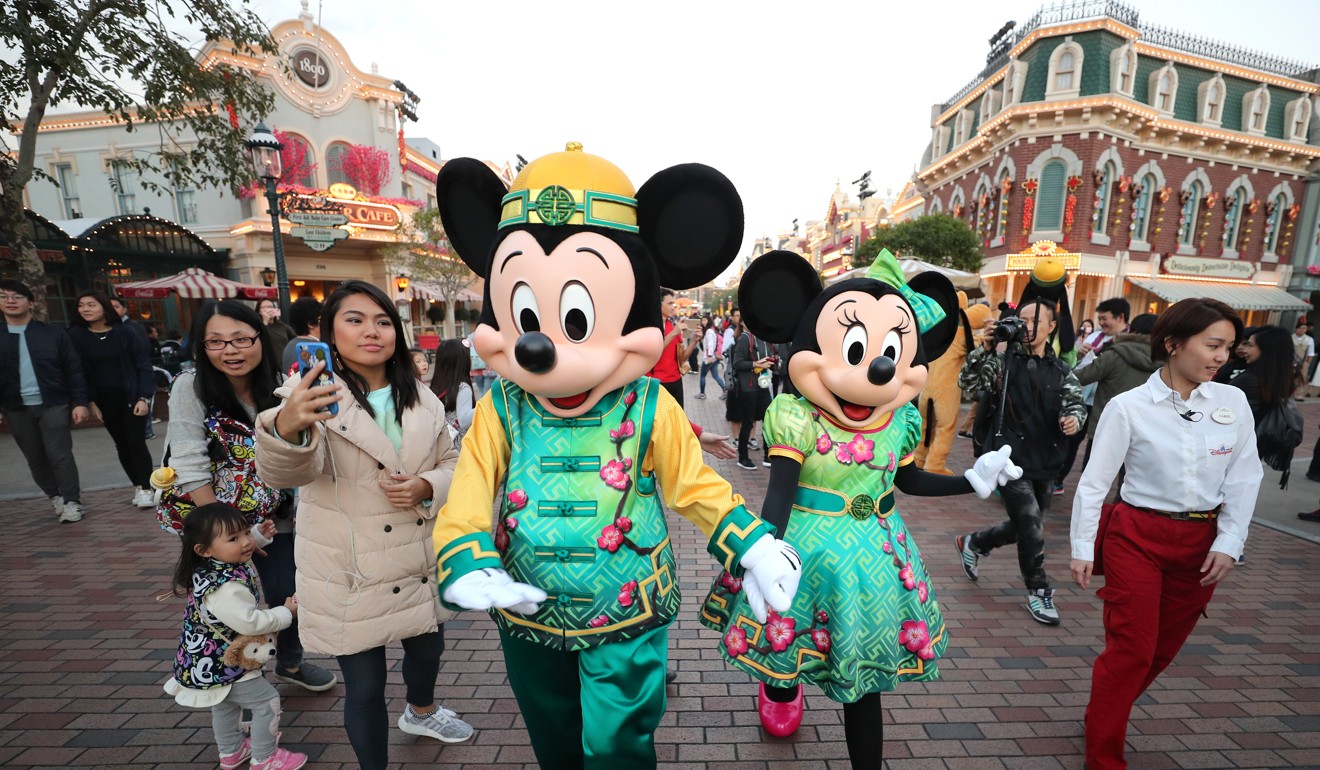
Hong Kong Disneyland Resort posts loss for fourth straight year – despite higher visitor numbers reducing deficit to HK$54 million
- New managing director attributes performance to 8 per cent rise in attendance and 18 per cent rise in revenue
- Theme park focused on making most of new transport links to mainland China
More visitors helped Hong Kong Disneyland Resort’s fortunes improve last year as it posted a loss of HK$54 million (US$6.94 million), a significant improvement from the HK$345 million deficit it reported in 2017.
But the Lantau Island theme park, of which the Hong Kong government is the majority owner, still posted a loss for the fourth year running.
“I am quite confident the business will continue to benefit from the momentum,” Young said. “There is a little bit of cloud with some [negative] economic forecast, we remain diligent in all of our efforts in keeping moving in the right direction.”

Fresh challenges arose this year after the Hong Kong Tourism Board forecast the number of people who would visit the city would only grow by 1.9 per cent in 2019, while Financial Secretary Paul Chan Mo-po warned of an economic slowdown as a result of the US-China trade war and the financial predictions for China’s economy overall.
During the theme park’s 14 years of operation in Hong Kong, it has only managed to turn a profit for three years.
An indicator of the park’s underlying performance, earnings before interest, taxes, depreciation and amortisation (EBITDA), jumped 48 per cent to HK$1.35 billion thanks to higher revenue and a smaller impact of the pre-opening costs of the new 750-room Disney Explorers Lodge.
Lawmaker Michael Tien Puk-sun said he was disappointed despite the resort’s improved performance.
He pointed out that its EBITDA gained HK$460 million last year, but management fees and royalties paid to parent company Walt Disney amounted to HK$230 million as part of a profit-sharing arrangement.
The global giant owns 47 per cent of the theme park while the government owns 53 per cent through a joint-venture.
“I am angry that Walt Disney pockets the gain but not the joint-venture, which was partly funded by Hong Kong taxpayers’ money,” he said. “This is unfair.”
Young pointed out the 2018 performance had yet to reflect the impact of two new cross-border infrastructure projects – the Guangzhou-Shenzhen-Hong Kong Express Rail Link and the Hong Kong-Zhuhai-Macau Bridge – which opened in September and October respectively.

“We are looking to bring in more visitors from 23 mainland cities through raising the awareness of Disneyland and cooperating with mainland China tour agents over ride-and-play packages,” she said. “We are just 10 minutes from the bridge.”
The theme park was most popular with Hong Kong people, who accounted for 40 per cent of its total visitor numbers, with another 34 per cent from mainland China.
Disneyland is banking on its six-year HK$10.9 billion expansion plan for future growth from 2018. The plan, will see attractions involving characters from Marvel comics, the smash-hit Frozen and an upgraded castle, opening annually from this year.
Young said the park had yet to decide whether to raise its entrance fees this year.

